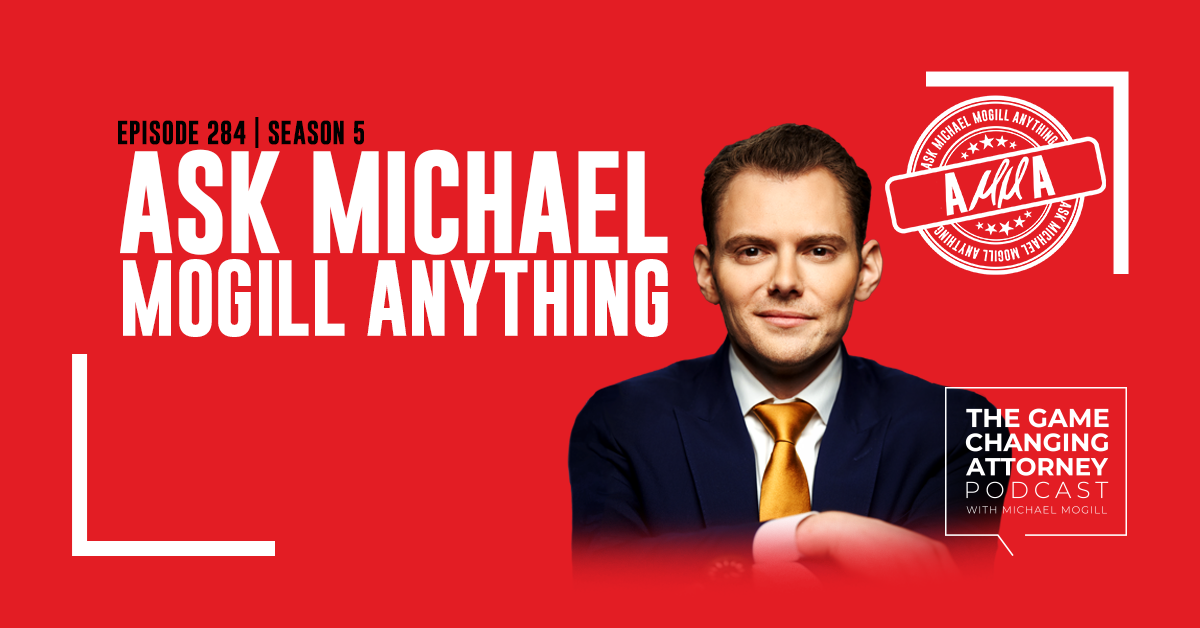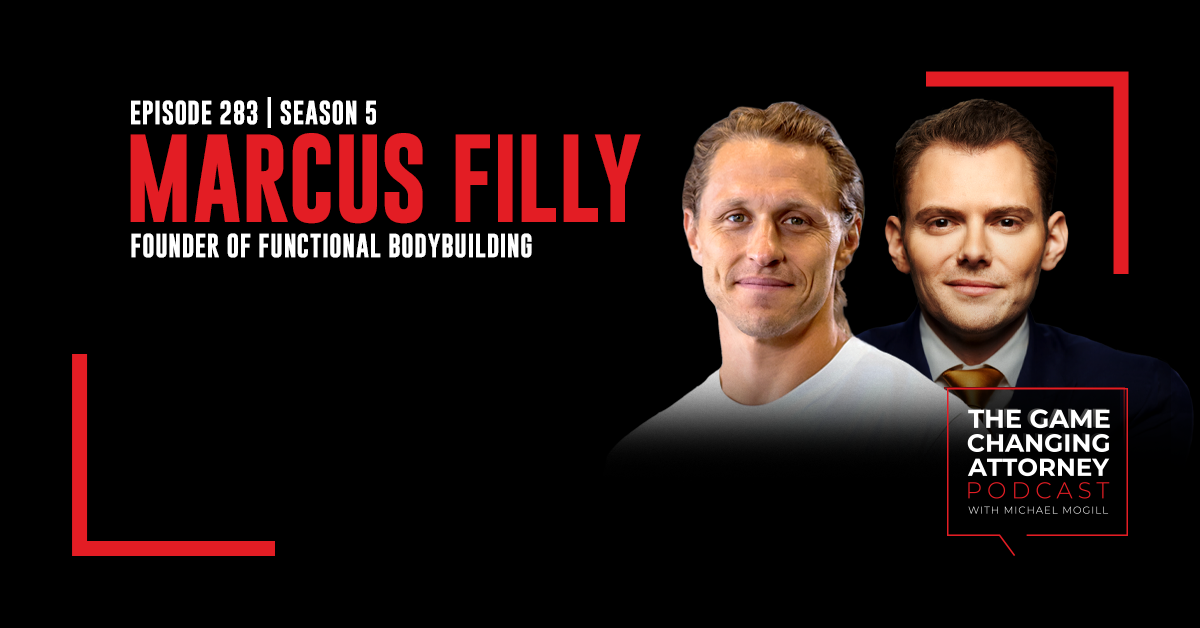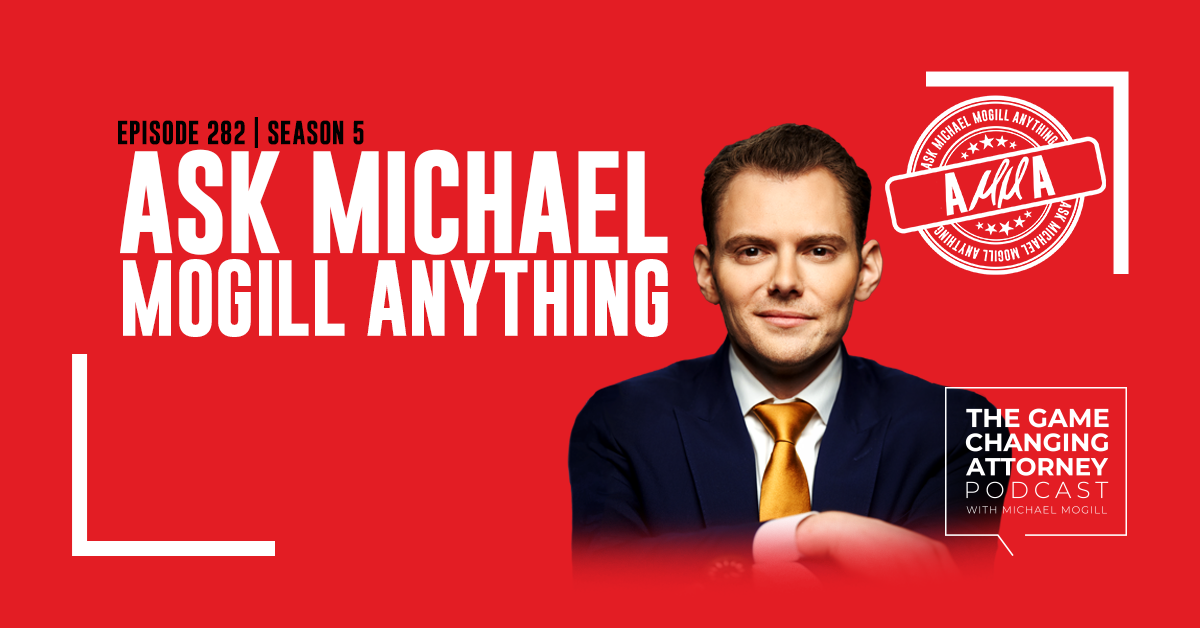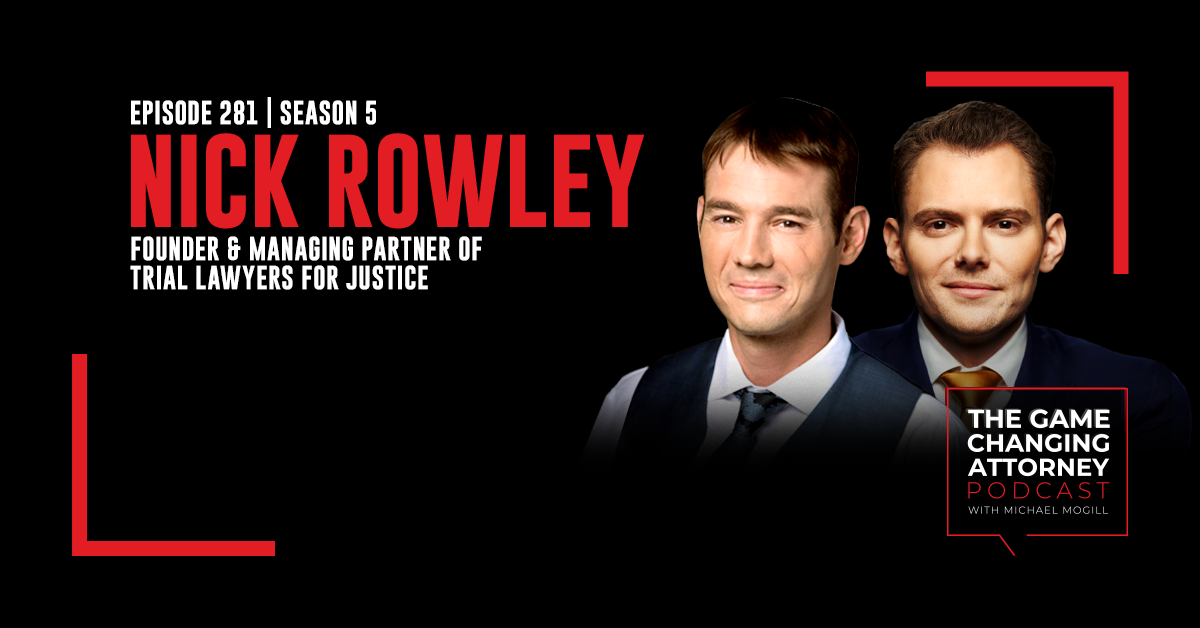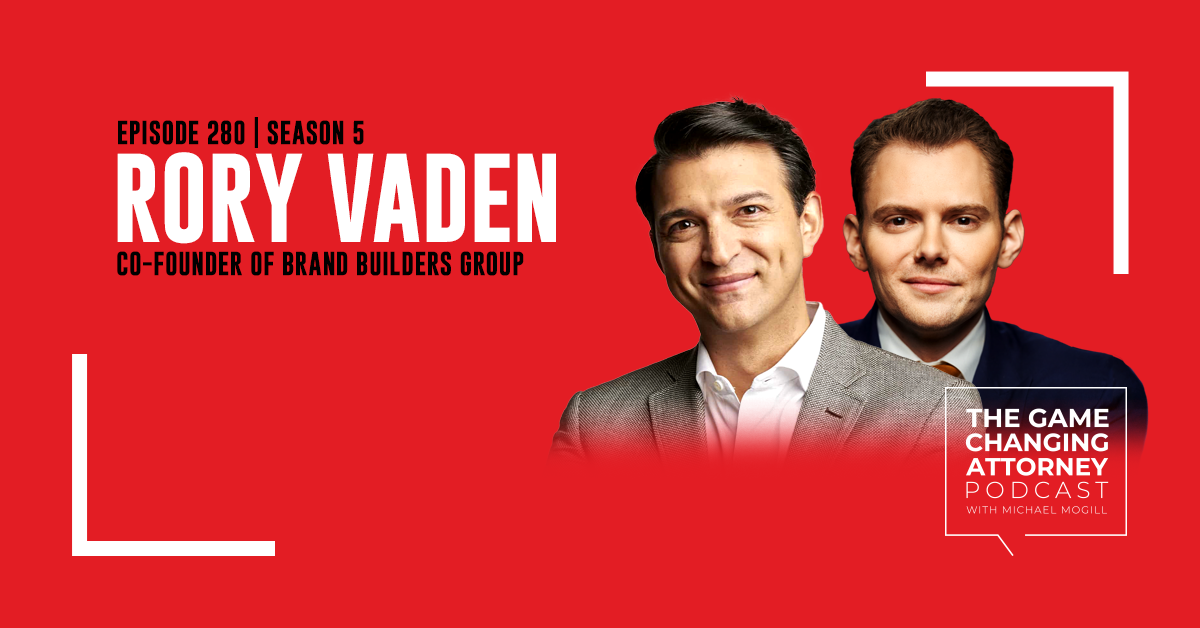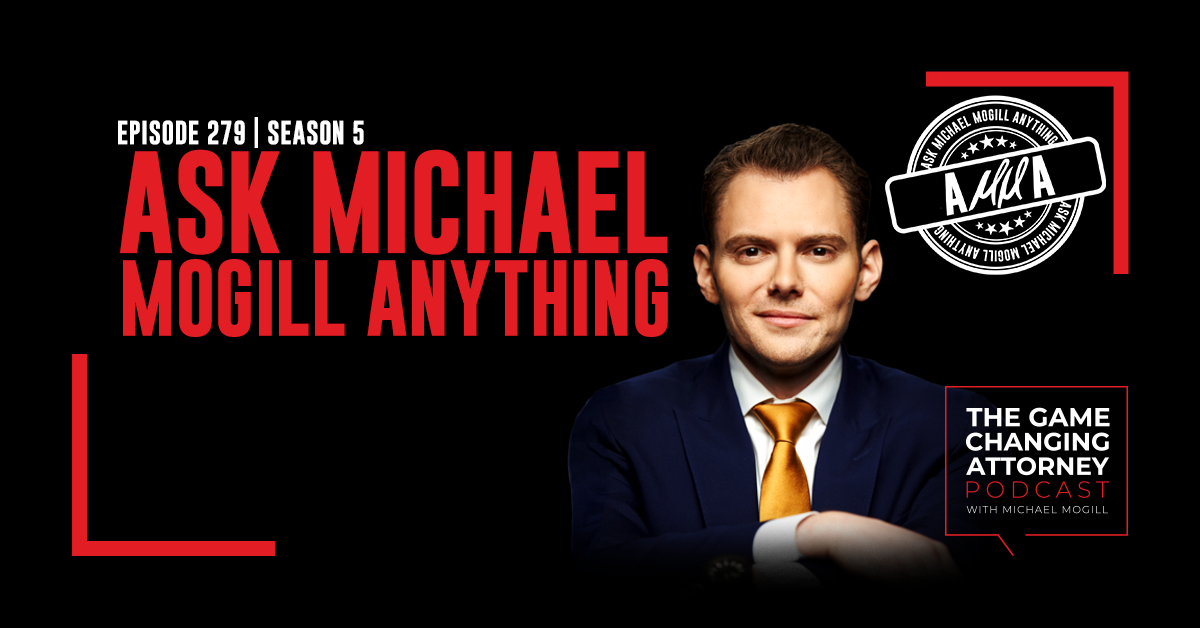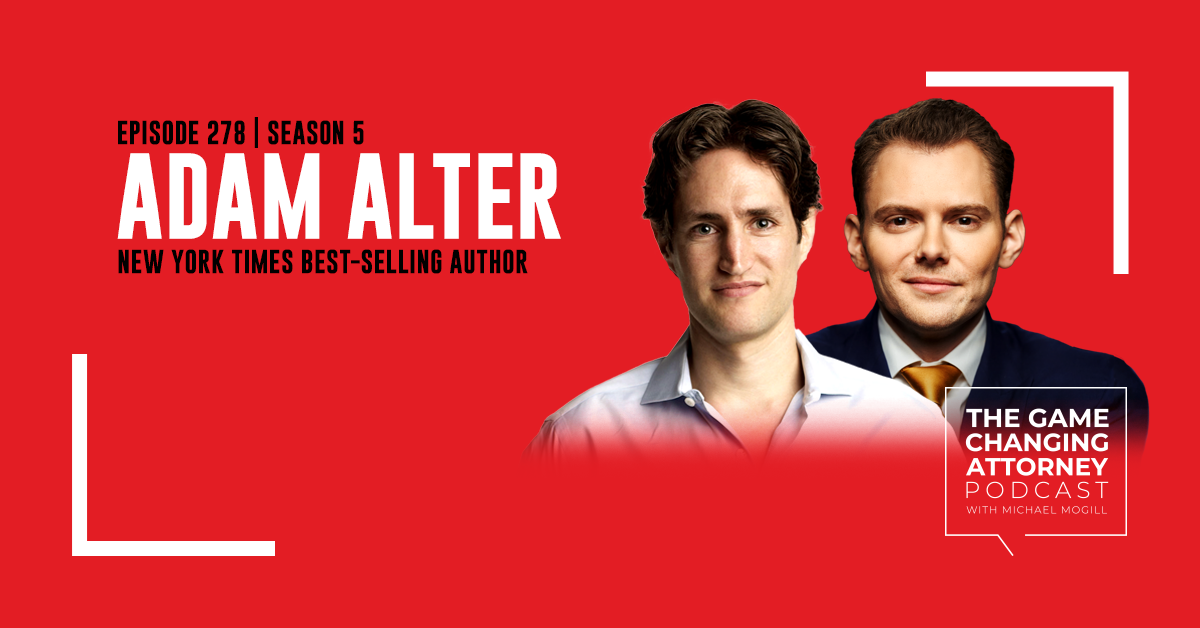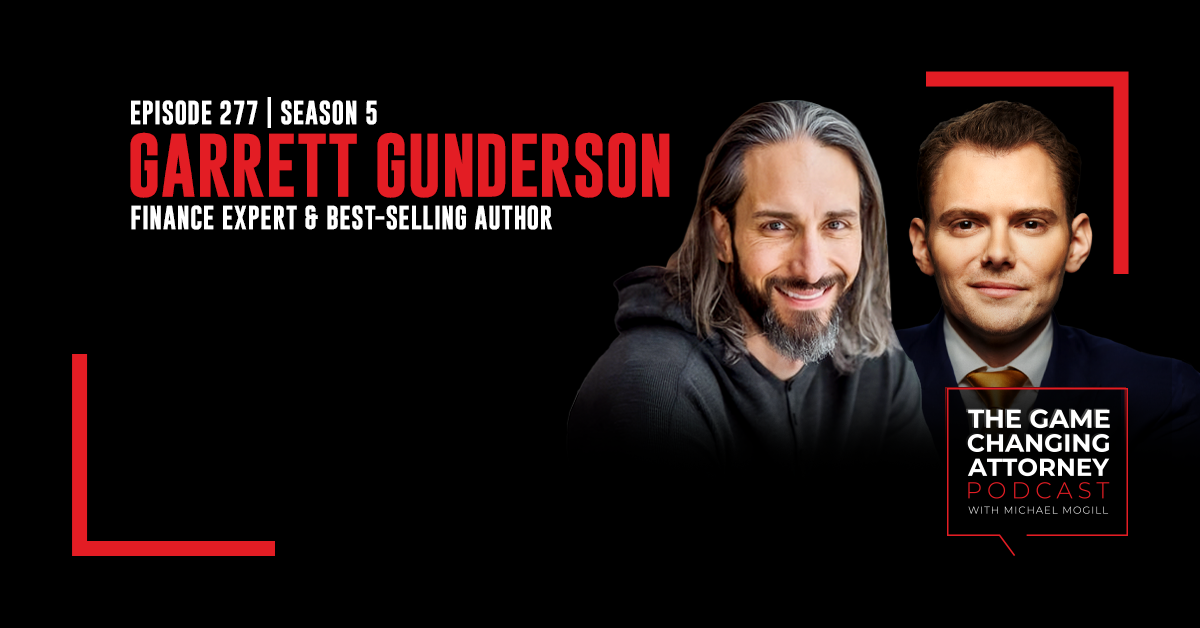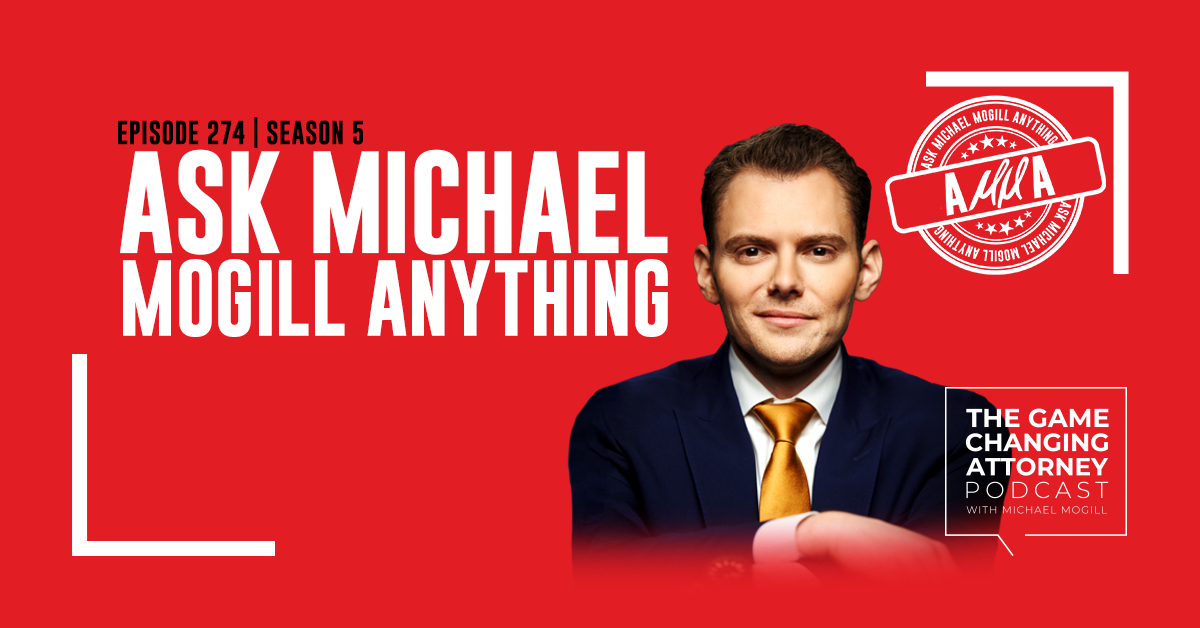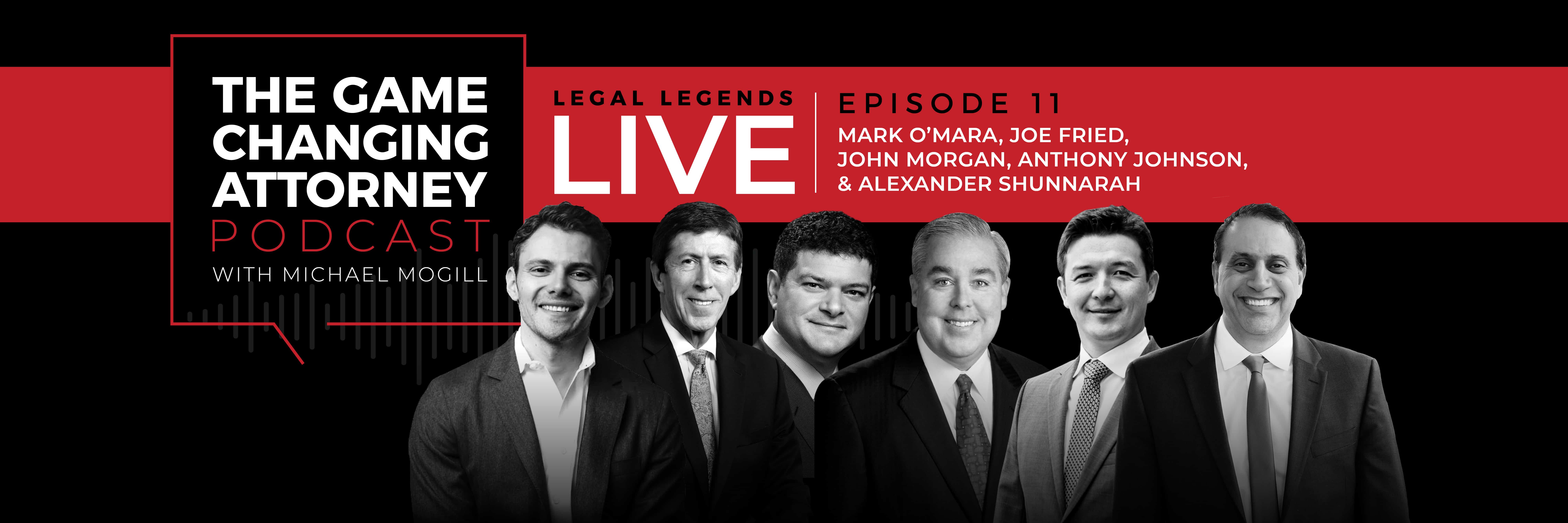
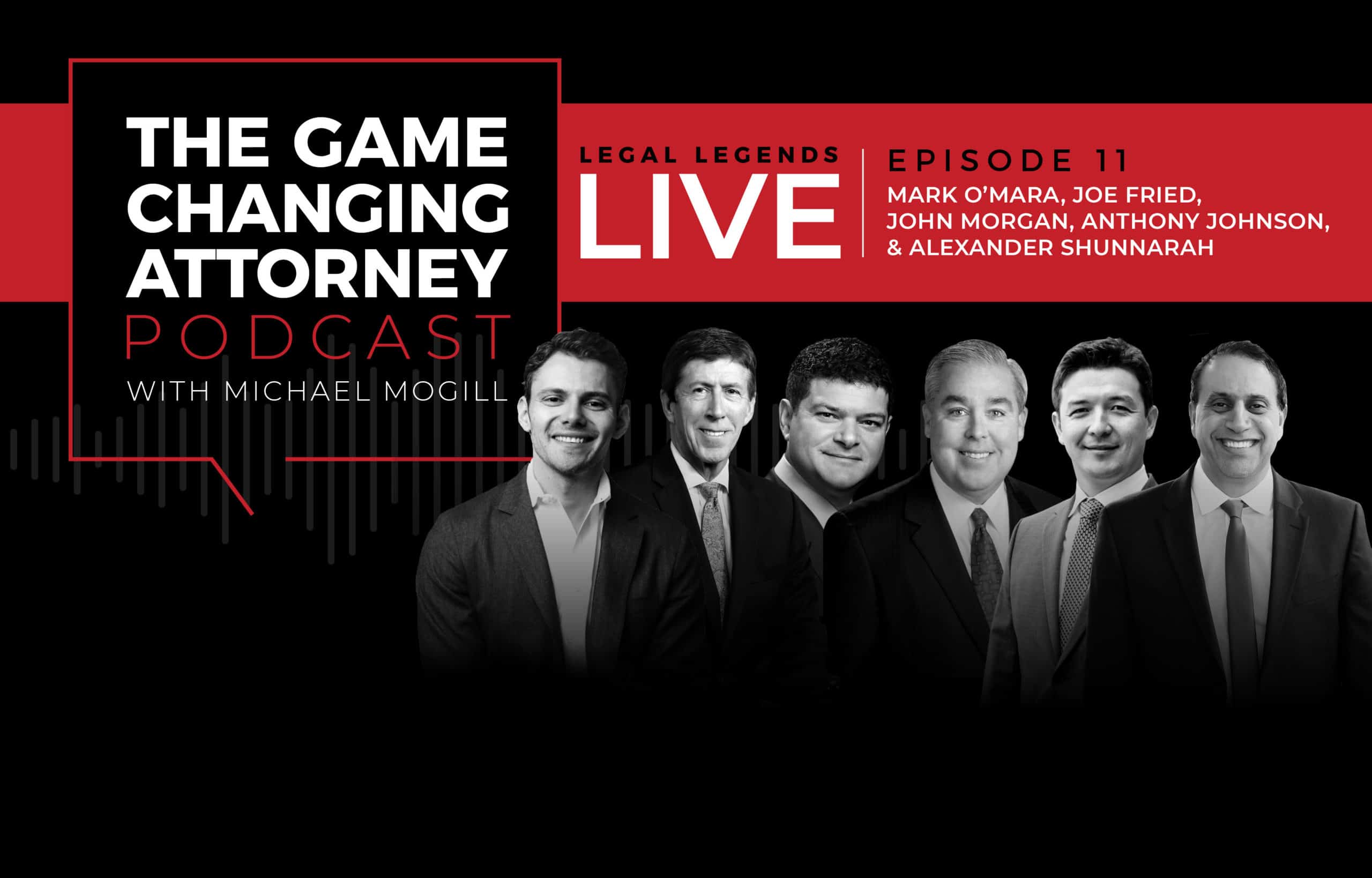
EPISODE 11 — Legal Legends LIVE
We all know them: titans in their fields, dominators of their markets, household names in their communities.
What are their secrets? How did they build their empires? How did they rise to the top — and stay there? And how can YOU do the same for your law firm?
Simple. JUST ASK THEM.
In this very special LIVE episode of The Game Changing Attorney Podcast, Crisp Founder & CEO Michael Mogill brings together five of the heaviest hitters in the legal industry for a no-holds-barred conversation on everything from business growth, to competition, to the future of the law profession and beyond.
Join Mark O’Mara, Joe Fried, John Morgan, Anthony Johnson, and Alexander Shunnarah as they return to the podcast to dive deep into:
- The lasting impact the global pandemic will have on the legal industry
- Top dos and don’ts of hiring Millennials
- The biggest legal marketing mistakes on the market
- What it takes to grow your law firm into a market-dominating powerhouse
- and MORE
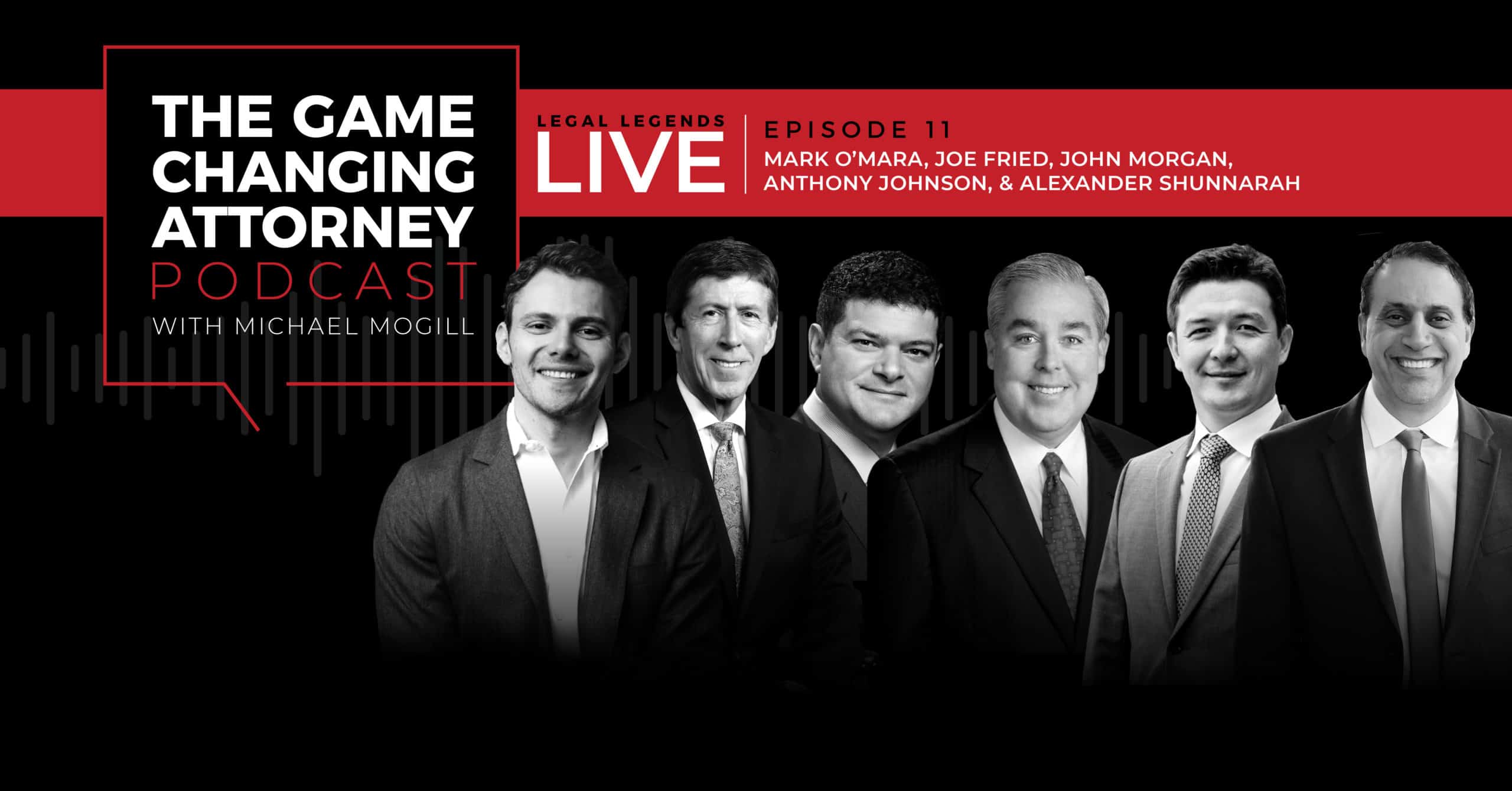
Listen & Subscribe
Show Notes:
1:50 – The pandemic has forced productivity. “It’s been challenging, but it’s been great. The reason it’s been great is because it has forced us to do what we never would have done but for the pandemic. It has forced us to rely on technology. It has forced us to work at home. It has forced us to measure productivity. During this pandemic, we have never been more productive. We are measuring keystrokes. We are measuring time on the computer. We are watching like we’ve never watched before….What’s going to happen from all this is we’re going to emerge stronger, better, smarter. We will never do what we did before.” [John Morgan]
6:33 – Move the whole profession forward. “If we can take some of the lessons that we have learned over the past couple months — those of us who have been successful for it — and try and get that out to the rest of the profession and try and deal with it. Let’s face it. The leaders of the profession have an obligation. The success that we have is now an obligation to try and move that forward.” [Mark O’Mara]
10:28 – Find your “send and delete” person. “You’ve got to identify people inside of your firm that you can count on. I call them ‘send/delete’ people. A send/delete person is someone you send something to, you know it’s done, and you can delete it. Once you find that person, then you ruthlessly delegate to that person. The more people you find around you that you can send, delete, and ruthlessly delegate to — once you get to that point, then you become very efficient.” [John Morgan]
12:24 – For trial lawyers, it’s not about balance. “I think balance is an illusion. I think that what everybody on this call and many of our brothers and sisters out there share is ridiculous amounts of passion. And so we get our balance in a different sort of way. That’s what being a trial lawyer is about. It’s not really about balance. It’s about dedication, living a life of a servant leader, looking for ways that we can help the world, and that we can live in gratitude. To me, I’m terrible at balance. I hate the word balance. I don’t even want to think about it because I’m a total failure when it comes to balance.” [Joe Fried]
15:04 – When you have vision, everything is aligned. “If you can really identify what your vision is for your company, what your purpose is, how you’re going to change the world…If you can articulate and get behind something like that, there is no difference. The people I hang out with, the things I do in the day, the things I do at night — they’re all aligned with pursuing that vision. There’s really no balance of time.” [Anthony Johnson]
17:06 – Absentee ownership. “The one thing I’ve learned just the last five years, when I really started traveling and going outside of Alabama: There’s just too much absentee ownership in law firms, and it’s just amazing to me…They asked me the other day in an interview, ‘What are your work hours?’ I just said, ‘Eyes open, eyes closed.’” [Alexander Shunnarah]
18:25 – If you love what you do, balance doesn’t come from within. “We do this not because we need to keep the lights on, but because we love doing it. So to me, I actually have to remind myself. I have to set an alarm on my phone at 7:00 that says, ‘It’s 7:00. You’re supposed to go home.’ Every night it chimes, and I look at it and I go, ‘Another half hour.’ We love this stuff.” [Mark O’Mara]
20:11 – A data-driven approach is the only approach. “I have a philosophy that goes like this: I don’t want some cases. I want all of the cases. And so I start from that. How am I going to get them all? You’ve got to really pay attention to data. We get reports on accidents every day, and then we cross tab that against the number of cases we signed up, and we have a good idea of what percentage of those cases we’re getting. If you don’t, if you’re not fueled by data, you’re driving without a map — and you’re going nowhere fast.” [John Morgan]
21:36 – Don’t focus on how you’re going to get calls. Focus on what you do once you get that call. “We’re all kind of doing the same thing to get cases. But what do you do when the call comes at 6:00 at night? What do you do when the call comes at 3:00 in the morning? How fast do you get back to them?” [John Morgan]
23:32 – There is no less opportunity today. “If you look at this world, same amount of people, same amount of needs, same amount of mouths to feed, same amount of interactions, same amount of shit going on with insurance companies and businesses and everything else. There is just as much business out there. It’s just about whether you’re smart enough to see what people are calling chaos and disruption and this new world — you should be pouring your money into being the first guy into the gold rush of all these new litigations in this new world…No one can convince me there’s less opportunity today than a few months ago.” [Anthony Johnson]
27:50 – Looking for a needle in the haystack. “I am NOT looking for all the cases. I am looking for a needle in the haystack. I work on very few cases at a time…My life is about relationships with other lawyers, and that’s where I get my cases from. I spend a lot of time teaching in my space. I spend a lot of time trying to educate in my space and putting on programs in my space. And when I do that, I’m not doing it really to market. I’m doing it with the heart of really trying to help raise the way my cases that I know a lot about are handled.” [Joe Fried]
28:49 – How to compete? With your passion. “My advice to people who don’t feel like they can ‘compete’ in these markets is to think about what differentiates you. The question that I think should permeate you is why should and who should be hiring you and for what — and it should be based on your passion.” [Joe Fried]
35:51 – Don’t pick employees (or jurors) based on gut feelings. “Picking an employee has to be based on metrics outside of your own gut feeling, and I credit Michael and Crisp with this: using Kolbe and PRINT and these things that when I first heard about them, I resisted them because I thought I didn’t have time for that. ‘Just get them in and I’ll train them to be who I want them to be’ is absurdly stupid. It’s picking a juror without knowing anything about him. You have to use these metrics to get them in.” [Mark O’Mara]
38:03 – We don’t need everyone in the world to love working with us. “We need the people that are aligned with our vision and our understanding and appreciation of what we’re doing — we need THOSE people to work with us.” [Anthony Johnson]
48:30 – We have an affirmative obligation to our clients. “We have a more affirmative obligation to our clients than just being a gladiator. People like gladiators, but not necessarily should every case be fought to the death in a courtroom. I think we have an affirmative obligation to all of our clients to be the voice of reason when necessary to take them down a path of less controversy, if we can, and resolution when we can. I’ll try any case anyone wants, but I think we have that obligation. You should not always be taking out an axe when you should have a scalpel in your hand.” [Mark O’Mara]
Connect with Michael
- Text directly at 404-531-7691
